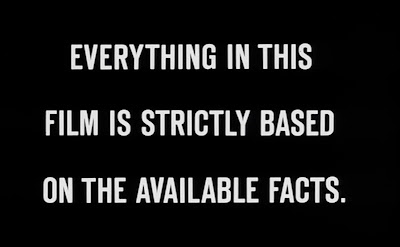
F For Fake, 1974
Dir: Orson Welles
October 5, 2009
"This is a film about trickery and fraud; about lies...almost every kind of story is almost certainly some kind of lie."
I don't think that I can form any kind of higher praise of this film than to say that the entire time I was watching this, besides being spellbound, I felt like I was being deceived. Despite what we find out, and Orson's own admission about lying about the Picasso story, I almost want to say that, like Clifford Irving, he might have just made up everything. The fact that Elmyr de Hory and Clifford Irving were able to hoodwink (or as Welles would say, "use hanky-panky") "experts" in their own specific fields (art and writing) made me think that this might have been Welles' attempt at a cinematic version. At times he does seem inspired by the sheer gall that both men have, and how that might even tie into his own life, especially considering the War of the World episode. The interactions between Irving and de Hory are ridiculous and hilarious, considering that everything that comes out of de Hory's mouth is basically refuted by Irving as bullshit. Is de Hory really trying to get people acknowledge his forgeries at legimate pieces of art considering that no one could ever prove they weren't unless he admitted it, or is he just having more fun?

The film itself is structured in a way that lets you think about what is being offered you, and yet it blows by so quick it makes you feel like you've missed something, or have been tricked. Welles basically invented "MTV" editing for this film, and it comes as no surprise to me that it was force-fed to unsuspecting teens in the future. That fact is that it is very efficient in what it does. It is just another stunning way that Welles found to tell stories, and also dig deeper into the nature of cinema itself. The way the multiple "biographies" are woven together throughout the film, you aren't really ever certain what to believe about what is being said. At points with Oja Kodar, however, I kind of felt like he was just showing off his hot young girlfriend, like he was saying, "Look at this, everyone. Yeah, I know you like to look, but she is mine. All mine." Whatever, Orson. I indulge you with practically everything else, because it's awesome, but this was just too much.
The film, as many note, comes across as a very personal essay from a man that knew a thing or two about "fakery." There is no better place to find a thesis than when he talks about Chartres, the "anonymous" cathedral, which also happens to be the most poignant moment in the film :
"Ours, the scientists keep telling us, is a universe which is disposable. You know it might be just this one anonymous glory of all things, this rich stone forest, this epic chant, this gaiety, this grand choiring shout of affirmation, which we choose when all our cities are dust; to stand intact, to mark where we have been, to testify to what we had it in us to accomplish. Our works in stone, in paint, in print are spared, some of them for a few decades, or a millennium or two, but everything must fall in war or wear away into the ultimate and universal ash: the triumphs and the frauds, the treasures and the fakes. A fact of life ... we're going to die. 'Be of good heart,' cry the dead artists out of the living past. Our songs will all be silenced – but what of it? Go on singing. Maybe a man's name doesn't matter all that much."
Orson Welles was for quality art, no matter it's creation or creator. It's pretty obvious that throughout his career, he made an abundance of it.


No comments:
Post a Comment